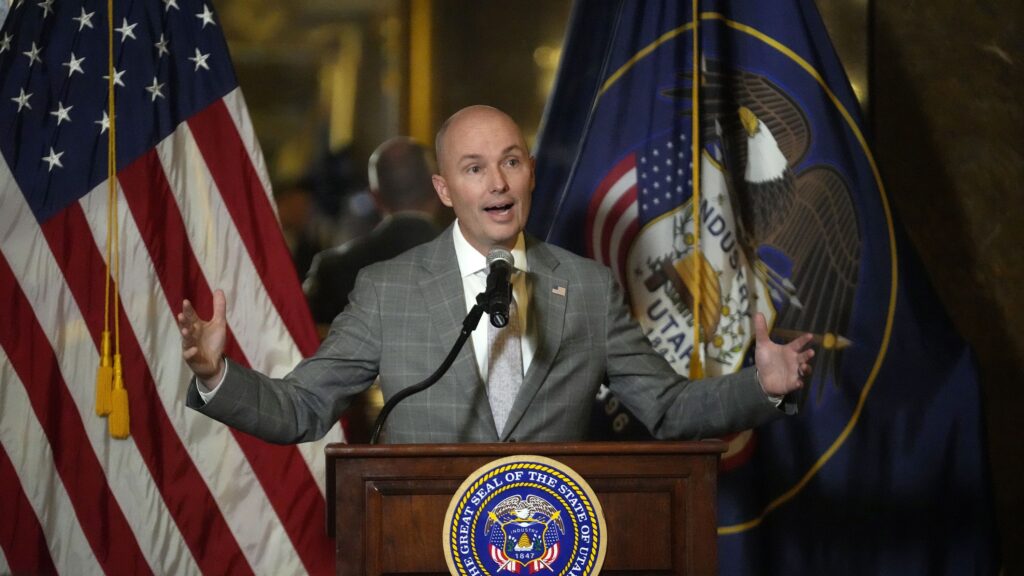The game-changing ballot measures soon to emerge | SONDERMANN
There is only so much political oxygen. Around here, attention is currently consumed by the final weeks of the legislative session, along with the perpetual oxygen-sucking machines that go by names like Trump, Boebert, and Williams.
While all those command the headlines and clicks, the developments and machinations with the most potential long-term consequence for Colorado are taking place very much behind the scenes.
The reference is to the slew of prospective ballot measures filed by Denver business magnate Kent Thiry and his well-compensated team of political advisors and fixers.
Some regard Thiry, the longtime CEO of dialysis giant, DaVita, as Colorado’s Mr. Political Reform. Others consider him little more than a modern-day Douglas Bruce in making a pastime of the ballot initiative process.
Relative to dear Doug Bruce, Thiry sports a far better wardrobe and travels with a Rolodex (OK, archaic terminology) replete with establishment names. Both share a history of run-ins with various arms of the justice system.
What constitutes a “slew,” you might wonder when it comes to filing ballot proposals? Well, reports are that Thiry’s team has submitted upwards of 60 such measures, each with a slightly different angle or tweak. Some are constitutional; others are statutory.
Perhaps the legal team at Brownstein offered Thiry a volume discount.
I start with two premises in approaching these ballot measures currently marinating and going through the title review process.
My first postulate is that the current iteration of our political system has grown grossly dysfunctional, with structural incentives that tilt the power axis markedly toward more extreme positions on the far left or right. These structures have significantly contributed to the deep and dangerous, even tribal and hateful, divide that defines our current age.
My second supposition, flowing from the first, is that nearly all reasonable steps that would shift our politics, even marginally, back in a centrist direction are worthy of exploration.
Put simply, when the status quo is broken, try something different.
Sheerly by their numbers, Thiry’s filed proposals cover a gamut of ideas. But they center around a handful of basic goals.
His troops looked to establish a unitary primary election in which candidates of all parties, or no party at all, would run with the top four finishers, then move on to the November election. That general election would use ranked-choice voting. More on that in a bit.
They further aim to modify the long-antiquated caucus system to make it easier for candidates to gain a spot on the primary election ballot via petition. They would also replace the current, overly-used process of party-insider vacancy committees filling open offices, especially in the legislature, with the more accepted norm of special elections.
Colorado’s single-subject rule will require several separate ballot items to accomplish the entire expanse of their ambition.
Let’s tackle these in reverse order, saving the more complex ones for last.
The move to send vacancy committees to the political dustbin is a no-brainer. Nearly one-third of Colorado’s current legislators first took office through this process run by a handful of each party’s noisiest, most opinionated, and often most polarized activists. Enough already. Let democracy reign and voters be heard.
The only problem with Thiry’s approach to the caucus system is that it is way too tepid. Why try to save a few remnants of a process long on life support due to lack of participation by all but the most ardent? Put the caucuses out of their misery. Remember the classic movie, “They Shoot Horses, Don’t They?”
Where California and Washington state employ a “top two” system featuring an all-comers primary with the two highest finishers moving onto the general election regardless of party affiliation, Thiry and his brain trust have opted instead for a similar jungle primary.
Contenders would be identified by party while all running in the same pool with the top four vote-getters, irrespective of party, earning a spot on the general election ballot.
The lynchpin of Thiry’s proposed reform is the utilization of ranked-choice voting for general elections. While I am not without worry about the complexity of this process and the lag time involved in calculating results, this system, also known as an instant runoff, is designed to benefit candidates with broad acceptability and handicap those outside the mainstream on both poles.
Is that not precisely what our broken process desperately needs?
Ranked-choice voting is not some new-fangled experiment. A handful of states employ it, from easternmost Maine to westernmost Alaska. In red Alaska in 2022, the process resulted in voters reelecting a MAGA-Republican governor and independent-minded Republican senator, Lisa Murkowski, while sending to Congress a Democrat of Native American origins.
That shows rather stunning bipartisanship in a highly partisan time.
It is unclear which Colorado measures will pass title-setting muster and then move to the ballot at Thiry’s behest and with his funding. He has preferred going in pairs by sponsoring Propositions 107 and 108 in 2016 to open primary elections to unaffiliated voters and Amendment Y and Z two years later to create independent redistricting commissions. All four were to the good in my book.
Plenty of operatives in both parties see these coming initiatives as some kind of nefarious ploy by the other side. Paranoia abounds. Democrats fear that it could create a muddle in which Republicans escape the self-imposed damage to their brand. Republicans of a conspiratorial bent see it as some kind of intricate plot to further benefit most Democrats.
Questions always surround Thiry’s personal ambitions and whether this is all a prelude to a run for governor. I take such speculation with a grain of salt. Thiry comes to any table with huge assets and liabilities just as large. And I am not talking about a financial ledger sheet.
He would be an opposition researcher’s fondest dream. The hundreds of millions DaVita paid out in Medicaid fraud settlements, just another cost of doing business, would put any such aspirations to rest.
Thiry’s ego puts him at the center of the story. But these coming ballot issues should not be a referendum on him.
Our system is ailing badly. There is no singular, easy fix. However, steps are available to promote candidates in both parties with centrist instinct and consensus mindset while erecting a small roadblock to the loudest troublemakers being hatched on both ends.
The proposals soon to emerge will merit close inspection. But those, both Democrats and Republicans, who reject them out of hand should be pressed to offer a better idea. An endless supply of more of the same does not meet the test.
Eric Sondermann is a Colorado-based independent political commentator. He writes regularly for ColoradoPolitics and the Gazette newspapers. Reach him at EWS@EricSondermann.com; follow him at @EricSondermann













